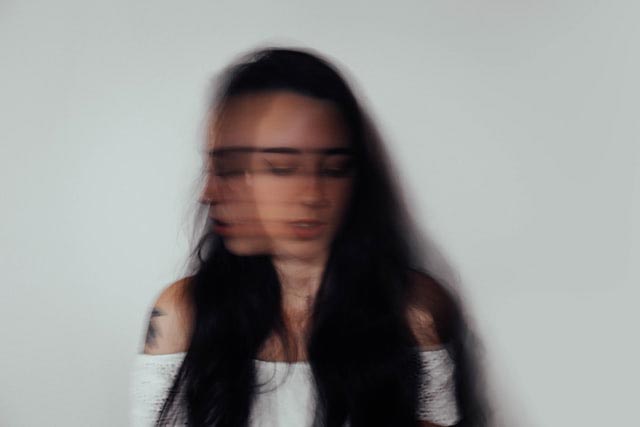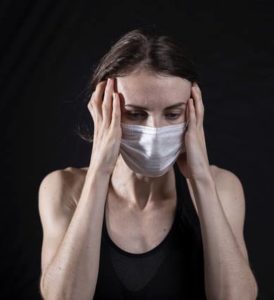Can You Be Cured of Anxiety?
Can you be cured of anxiety? To learn the answer first let’s look at what anxiety is. Anxiety can become a real burden on your life when you don’t take steps to tackle it head-on. For many people, being diagnosed with anxiety is entirely unexpected, as it often happens later in life. The trigger event to cause anxiety in your life will vary based on several different factors. Regardless of what causes it, anxiety affects people in much the same manner.
People who suffer from anxiety experience the same symptoms. However, the frequency at which you experience those symptoms and how severe they are can vary. When speaking with a doctor about anxiety, most will recommend or prescribe you a medication.
While medications for anxiety can be useful in treating immediate symptoms. They tend to not provide lasting relief once you get off them. So, you’ll need to implement small routines in your day-to-day activities to mitigate your anxiety symptoms.
To learn more, continue reading.
Is Anxiety Curable?
For starters, anxiety can’t be cured permanently. That is the physiological symptoms of anxiety. Anxiety is mainly a psychological condition triggered by life events. For a doctor to assess this on an individual basis would be overwhelming. So, the brunt of the burden to relieve your anxiety rests with you.
While anxiety may not be “curable,” it’s definitely manageable. You’d be surprised to find out how significant an impact our daily activities have on anxiety levels. Suppose you engage in lots of activities that induce stress markers in the body. In that case, you can expect your anxiety to get worse.
So, if you want to reduce the direct effects of anxiety, take a look at some of the best ways to do so below. Before you read the best tips for managing anxiety, Evolved is an example of a reputable anxiety management services provider that takes a humanistic approach to your condition.
Here are some of the best ways to manage your anxiety from day to day:
- Exercising regularly helps improve mental & physical health
- Quit smoking as soon as possible
- Try meditating
- Start eating a healthy diet
- Stop drinking alcohol
- Get a good nights sleep every night
- Concentrate on deep breathing exercises
Combining these different tips can help reduce your anxiety experiences drastically. Often, anxiety is a result of other areas in our life that are in disarray, by focusing on bringing in a more cohesive approach to your life overall. You can tackle anxiety with confidence.
Managing Your Anxiety Most Effectively for Yourself
Seeking help from an experienced anxiety therapy group like Evolved can also help you overcome many issues related to anxiety. Every person is different, so the exact treatment needed for anxiety differs. If you seek professional assistance, you should be mindful of how to choose the right company that can help you.
Avoid seeking medication-based treatment for anxiety, especially if you’ve already taken on cycle. Sit down with yourself first and see what areas in your life may be contributing to the anxiety you experience. Once you identify your weak spots, you’ll be able to eliminate them using a practical approach.
Anxiety is a constant fight that you can with enough willpower. Never let one bad day make you feel like your entire life is out of order. Take it one day at a time, and you will start seeing results.
People Also Ask
Q: Is an anxiety disorder permanent?
A: Yes, the physiological factors that trigger anxiety in an individual are permanent. But, there are ways to reduce the symptoms you experience regularly.
Q: How can I permanently cure anxiety?
A: There are several things you can do daily to help manage anxiety. Routine exercise is one of them, avoid drinking alcohol, maintain a healthy diet, and concentrate on deep breathing.
Q: How long does it take to cure anxiety?
A: If you’re using a medication, 2-6 weeks typically. But, several independent factors determine this.
So Can You Be Cured of Anxiety?
You can use all of the information and tips in this article to help manage your anxiety effectively. If you want to learn more about managing anxiety, take the time to visit the official Evolved Health Services website to see an example of their therapeutic approach.

 Anxiety seems to peak at the ages of 5-7 years old and during your adolescence period. Anxiety activates by a series of events of past experiences; seldomly can someone bring anxiety onto themselves. Some of the most common signs of having an anxiety attack include: shaking, increased heart rate, dizziness, trouble breathing, and more.
Anxiety seems to peak at the ages of 5-7 years old and during your adolescence period. Anxiety activates by a series of events of past experiences; seldomly can someone bring anxiety onto themselves. Some of the most common signs of having an anxiety attack include: shaking, increased heart rate, dizziness, trouble breathing, and more.